
XiXinXing/XiXinXing/Getty Images
People with physical or emotional disabilities, at-risk teens with drug addictions or behavior disorders, and seniors might have difficulty living alone safely and healthfully. Family, friends and organizations needing reassurance that these individuals can cope effectively with necessary day-to-day tasks need to assess their coping skills. These skills include the ability to look after personal needs, physically and emotionally. Independent living skills also include the ability to understand how things work, the relationship between actions and consequences, and good decision making.
Hygiene and Health
It's essential that people who wish to live alone and unassisted are able to take care of their personal needs. This means recognizing the need for bathing, grooming, using the toilet, and laundering clothing. It also means recognizing symptoms of illness such as colds or headaches and knowing when medications are necessary as well as what medicine to take.
Safety Concerns
Safety issues revolve around the ability to recognize dangerous situations such as fire in the kitchen, and how to act appropriately in such situations. If an individual is wheelchair-bound, it's important that the home is equipped with ramps and support bars in the bathroom and that the person is capable of navigating these areas alone. Recognizing emergency situations and knowing when to call 911 is also necessary.
Nutrition
Understanding the importance of eating well-balanced meals is a necessary skill. The individual should know how to shop for groceries that provide adequate nutrition. It's also important to know how to prepare meals at home. The Washington State Department of Social and Health Services' Life Skills inventory adds the skill of knowing how to order in a restaurant.
Social/Emotional Needs
Humans are social creatures and need positive interpersonal relationships to enhance their emotional well-being. Good judgment is necessary to know who can be trusted to avoid getting taken advantage of. The Casey Family Programs' Life Skills Guidebook suggests an understanding of how negative and positive emotions, such as anger and caring or honesty and dishonesty, affect relationships.
Transportation and Mobility
Independent living requires mobility to safely get from one room to another in the home, as well as the ability to use private or public transportation to travel to work or school. This involves the physical ability to get in and out of cars or buses as well as knowing the schedule for public transit.
Finances
Basic money management means knowing the value of coins and bills as well as understanding the value of goods and services. It's necessary to be able to count change correctly and manage a simple budget. Knowing the difference between necessities and luxury items helps individuals make responsible financial decisions.
Related Articles
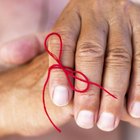
How to Assess If an Elderly Parent ...
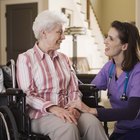
Programs to Take Care of a Disabled ...

Why Is it Important to Practice Proper ...
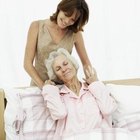
Caregiver Support Group Discussion ...
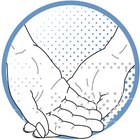
Charitable Organizations That Will Help ...

Types of Extrinsic Motivation

The Objectives of Proper Hygiene

Who Gives Donated Vehicles to the Poor?

How to Date Someone Who Is Codependent

What Are Soft Skills & Life Skills?

How to Handle Abusive Family Members
How Does Medicaid Work?
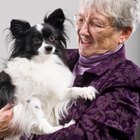
Activities for Homebound Elderly

How to Make Whipping Cream With Milk

What Are the Advantages of Nursing ...

How to Take Measurements for Tailoring

What Effects Can Stress Have on a ...

A Lack of Communication in the Family
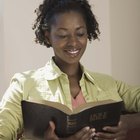
How to Be an Effective Sunday School ...

Dating a Man Who Is Losing His Mother ...
Writer Bio
Freddie Silver started writing newsletters for the Toronto District School Board in 1997. Her areas of expertise include staff management and professional development. She holds a master's degree in psychology from the University of Toronto and is currently pursuing her PhD at the Ontario Institute for Studies in Education, focusing on emotions and professional relationships.
Photo Credits
XiXinXing/XiXinXing/Getty Images